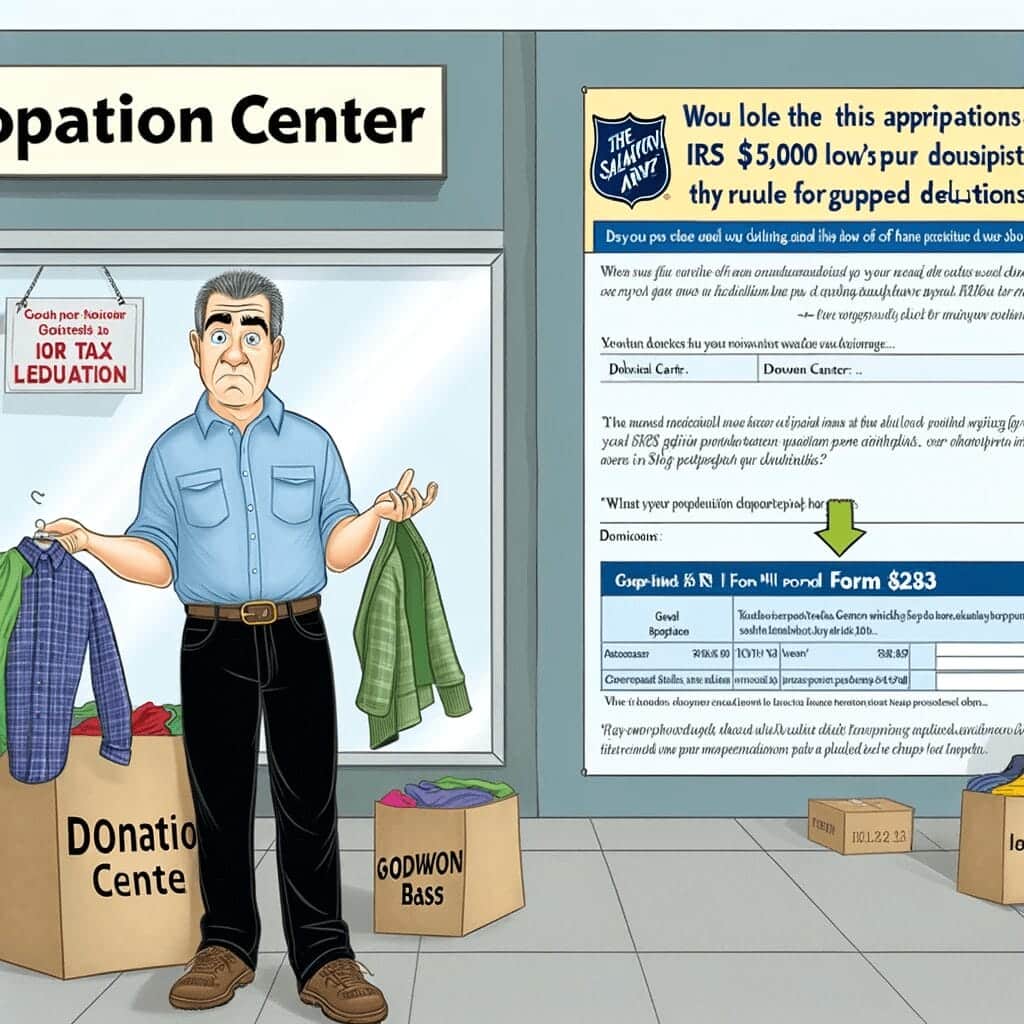Duncan Bass, a dedicated worker holding two W-2 jobs and running multiple businesses including a landscaping service, a janitorial company, and a used clothing store, found himself in a legal bind over charitable donations. Mr. Bass, who received various clothing items through his businesses, had a practice of donating the higher quality items to charitable organizations like Goodwill and the Salvation Army. Over two years, he claimed significant tax deductions for these donations, totaling $25,446.

Despite his good intentions, Mr. Bass faced a critical oversight. He made 173 visits to these charities, strategically keeping each donation under $250 to avoid the need for appraisals. However, this strategy backfired due to a misunderstanding of the IRS guidelines.
According to IRS Form 8283 and its instructions, as well as specific sections of the tax code and IRS regulations, donations of similar items must be grouped together when they total over $5,000, requiring an appraisal to validate their value. Mr. Bass’s method of breaking down his donations did not align with these rules.
The court decision was clear: without the necessary appraisals attached to his tax returns, none of Mr. Bass’s clothing donations could be deducted. This ruling underscores a crucial point for charitable donors: understanding and adhering to tax code regulations is essential when claiming deductions for non-cash contributions.
This case serves as a valuable lesson for anyone involved in donating to charities, particularly when it involves items of significant value. Before you donate, make sure you are familiar with the tax rules, especially those related to appraisals, to ensure that your generous contributions do not go unrecognized by the IRS.
Share this story to spread awareness about the complexities of tax-deductible donations and help others navigate their charitable giving more effectively.







